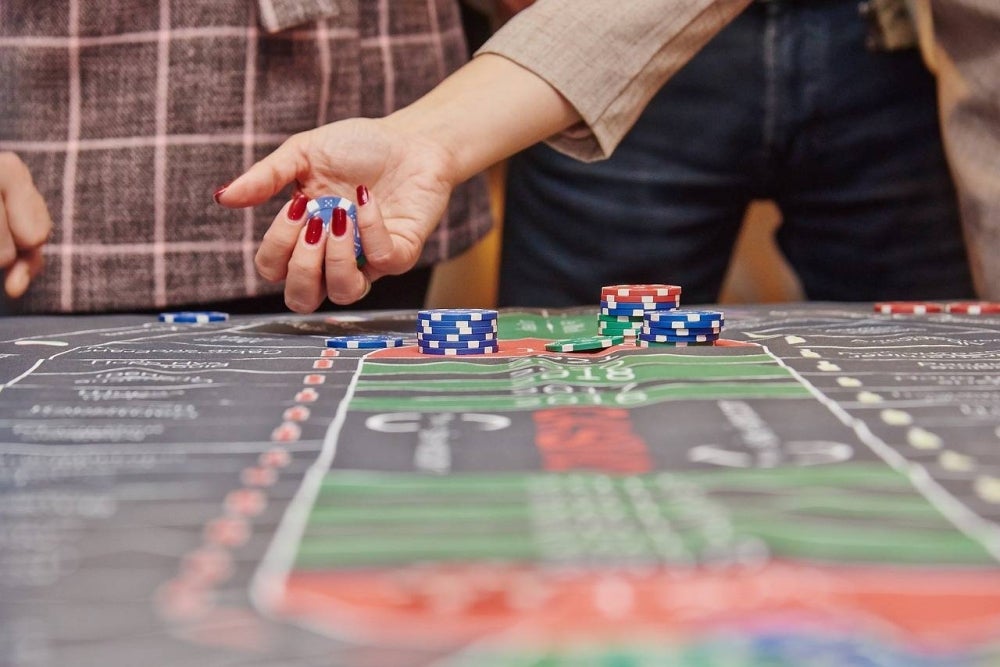The morality of gambling in the Malaysian context
JASON LOH
Gambling is a very broad concept that takes many forms and hence a complex of wagering or betting activities which is either engaged in professionally (i.e., as an occupation) or as a lifestyle (i.e., part of leisure).
At the heart of it is the placement “of something of value (typically involving money) at risk [from] an event with an element of chance in the outcome, with the potential to win a substantially larger prize [again, typically involving money]” (Interventions in Addiction, 2013).
Some operators take offence at the conflation between gambling and – the innocuous sounding term – “gaming”.
But given the vast array of permutations and embodiments and personifications both gambling and gaming can assume (which is virtually unlimited ad infinitum) and that are dictated by the one and same principle of betting on the outcome of an event, the disagreement is merely a quibbling over terminology.
Hence, it doesn’t matter whether it’s lottery, instant scratch tickets, races/tracks, sporting events, roll of the dice, etc., gaming is gambling (and vice-versa).
As it is, although gambling/gaming is inherently fun and gratifying, it’s also potentially addictive. Gamblers can develop compulsive or pathological tendencies or disordered mental profiles which have been identified and diagnosed as ranging from the sub-clinical to the clinical by psychiatrists (e.g., the American Psychiatric Association).
Specifically, even whilst many forms of gambling seem to be harmless because playing is deemed as the basis and boundary of the game (e.g., think slot machines, bingo), others (which overlap with the professional) can be destructive whether from the monetary/financial, psychological/mental or social/sociological aspects (e.g., roulette, blackjack, baccarat, etc.).
How does one situate the various types of gambling within a hierarchy according to and conditioned by the easily constrained/controllable to the less so – both self-imposed as well as due to the nature of the betting activity itself which are normally contingent on the levels of the wager/betting money.
The hierarchy of levels of gambling/gaming is, therefore, correlated to the degrees of compulsive drive which in turn is proportionate (as the “lognormal distributive”/”logarithmic” function) to the probability of addiction as measured by the levels of dopamine – the feel good/pleasure neurotransmitter which is released to a larger extent in pathological gamblers conditioned by the “high stakes” (i.e., high bet, high reward).
The more advanced the gambling/gaming form takes, the higher the compulsive drive.
In context of Malaysia, punting on horse racing and participating in number forecasting totalisators are the most common forms of (easily constrained/controllable) gambling/gaming that’re ubiquitous/conspicuous in our towns and cities. Number forecast operators (NFOs)/number forecast totalisators (NFTs) and special draw jackpot (or lottery draw) companies which are regulated under the Racing (Totalisator Board) Act (1961) have been part of the nation’s social landscape ever since Independence.
The value of the punt/wager/bet/stake can be as low as RM2 to RM8.
Usually, such forms of gambling/gaming which have been an integral part of the way of life for many Malaysians (non-Muslim, typically Chinese) have never presented problems (financial, social or psychological) – demanding serious policy attention.
It’s no wonder there are even Muslims who take part although the number is very few, and perhaps an even larger number of Christians too, because of the accessibility and low of levels of the punt/wager/bet/stake.
The problem is, of course, the existence of the black market.
These are the illegal empat ekor (4D) operators and demand is known to be 1.5 to two times larger than the NFO/NFT market and could contribute to the government losing up to RM3 billion annually (“What happens when you buy illegal 4D in Malaysia”, The Star, January 14, 2023).
The penalty for illegal gambling under the Common Gaming Houses Act (1953) is a fine of up to RM5,000, up to six months jail, or both.
Now it’s well known that gambling is strictly forbidden/prohibited (haram) in Islam. It’s also known that gambling is sinful in Christianity too.
However, unlike in Islam, where the prohibition on gambling is unequivocally clear, it’s less straightforward in Christianity. Furthermore, by default, gambling is governed and enforced under Syariah law via the State.
As it is, there’s no equivalent legal system in Christianity. The church is limited only to hortatory injunctions and, where necessary, excommunication as the measure in extremis.
In EMIR Research article, “Please don’t set up a casino in Sarawak” on June 14, it’s stated that Christians of all jurisdictions and denominations should advocate against the proposed setting up of a casino in the territory/state – since gambling is prohibited/off-limits.
As a matter of clarification, the Christian understanding isn’t monochrome but variegated.
Christianity in Malaysia is generally divided into Catholicism and Protestantism (the third great tradition of Christendom, namely Eastern Orthodoxy only has a miniscule presence here mainly through the Russian embassy and overseas missions and local converts are few and far between).
The Catholic Church doesn’t consider gambling to be intrinsically sinful, example it’s only so relatively and conditionally (prospective and retrospective).
The Catechism of the Catholic Church states that “[g]ames of chance (card games, etc.) or wagers are not in themselves contrary to justice ... [but the] passion for gambling risks becoming an enslavement. Unfair wagers and cheating at games constitute grave matter ...” (#2413).
Here, gambling (as playing) shares the same “logical status” with the natural existence/mode of life such as eating and drinking (alcohol). They only become sinful when done in excess, for example. That is, when the gambling appetite (fomes peccati, primi motus) becomes uncontrollable, overwhelms reason (intellectus), will (voluntas) and conscience (synderesis) and driven purely by greed.
Thus, for the Catholic Church, gambling is only prohibited/off-limits relatively, i.e., on the condition that it doesn’t develop into an addiction of some sorts or create psychological, financial and social problems later on.
This unlike in Protestantism whereby despite the various denominations and churches, there’s a “consensus” that gambling is sinful or ethically/morally wrong (i.e., absolutely and unconditionally).
That said, the language of the Catechism is slightly “ambivalent” (for lack of a better term), most likely deliberately crafted so for pastoral purposes (to allow for the flexible application of abstract doctrinal principles to a specific context – responding to the particular gravity of a moral or ethical question or dilemma under consideration).
This means, however, in reality and practice, advanced forms of gambling as embodied by the casino industry would be sinful already (whilst not necessarily so in abstracto, i.e., in theory) unless done within an internally restricted, controlled/ constrained environment which would be a virtual impossibility from a business point of view (in addition to the external constraint, i.e., in reference to the licensing regime, etc.).
In fact, it could be argued that advanced forms of gambling are actually in contravention with the core moral teachings of the Catholic Church (“The gambling business from the point of view of Catholic moral and social teachings”, Studies in Religion, January 30, 2023).
As set in the context-specificity of Malaysia where Islam is the official and established religion of the Federation and by default, the majority of the population are Muslims, the co-existence and co-presence of the Catholic Church should naturally and instinctively shape its opposition to gambling especially in its advanced forms on the basis of contextual theology (i.e., the application of the Christian ethos and worldview under context-specific conditions).
Taking into account the demographics of Sarawak where the actual or residual/rump market (on paper) is only about less than 20 per cent of the local population, there’s no social or economic justification.
Furthermore, given the socio-economic profile of the majority of the Christian population in the territory/state, gambling is definitively an evil to be avoided at all costs.
According to one research conducted in the Malaysian context, it’s found that lower education levels coupled with blue collar job profiles, etc. were associated with higher expenditure of gambling (“Socio-demographic determinants of gambling participation and expenditures: Evidence from Malaysia”, Tan AKG, Yen ST, Nayga RM, International Journal of Consumer Studies. 2010).
Propensity or proclivity to spend more in gambling presupposes and implies higher propensity or proclivity to gamble (as set in the context of advanced forms of gambling).
In the case of the non-Muslim bumiputeras of Sarawak which share a strong socio-cultural affinity with their fellow non-Muslim non-bumiputeras in the form of the Chinese (and not just with their fellow bumiputeras – who are Muslims), this provides a high probability in terms of extrapolation for a strong cultural influence and inducement to adopt casino gambling as a way of life or at least as an acceptable/legitimate form of leisure or past time activity.
Such a hypothesis or proposition can be validated and confirmed based on findings that have found that groups at higher risk of gambling and, by extension, gambling addiction are individuals of Chinese ethnicity, indigenous populations and the poor and less educated (“Gambling participation and policies in Malaysia”, Jasmine, M Y Loo & Kai Lit Phua, Asian Journal of Gambling Issues and Public Health, 2016).
This is further supported and substantiated by findings that marketing plays a critical role in inducing and influencing gambling propensity (as per “Factors influencing individuals' gambling behaviour – A case study in Malaysia”, T Rabaah & CY Woon, Asian Journal of Gambling Issues and Public Health, 2012). Marketing isn’t confined to the formal channels or medium such as promotional materials in the form of advertisements but interpersonal communications also.
Parental influence can also be potent – meaning that gambling (addiction) can be inter-generational (“Gambling in Malaysia: an overview”, BJPsych International, 2021).
Taken to extremes, gambling results in stress and undue pressure leading to mental health issues which can result in suicidal tendencies.
Allowing for a casino to be set up in Sarawak would only increase the number of people with mental health problems. And, of course, it’s a truism that not just the gamblers that’re affected but the families too, i.e., the net/web of victims go beyond the casino.
The setting up of a mini-casino in Sarawak would not contribute to creating a magnet for tourists and have no major impact on the territory’s tourism reputation – because the level of enticement/allurement/hype wouldn’t be exciting enough.
Gambling jobs provided by the mini-casino industry for the local non-Muslim bumiputeras would be low and semi-low skill. And hence low and semi-low paid – which will do nothing to boost the skills training and development of the youths.
For local gamblers, there could well be the economic/financial repercussions which accompany in the forms of high debt to loan sharks, bankruptcy, loss of employment (due to inability to hold on to a job attributed to addiction/compulsive behaviour), alcoholism (to manage the stress and pressure), drug abuse, etc.
The ideal situation is, thus, the status quo.
Avoiding the twin extremes of closing all gambling outlets irrespective of the hierarchy of levels on the one hand and expanding the casino gambling/gaming sector on the other.
Expanding and promoting a casino culture (considered as advanced forms of gambling) in Malaysia via Sarawak even when it’s still within a controlled environment is subversive of a moral framework which considers gambling as an evil albeit tolerable one (in turn comprising degrees of tolerance levels corresponding to the risk of addiction) and definitively not in line with the ethos and principles of Malaysia Madani.
Jason Loh Seong Wei is Head of Social, Law & Human Rights at EMIR Research, an independent think tank focussed on strategic policy recommendations based on rigorous research.
The views expressed in this article are the author's own and do not necessarily reflect those of Sinar Daily.
Download Sinar Daily application.Click Here!














